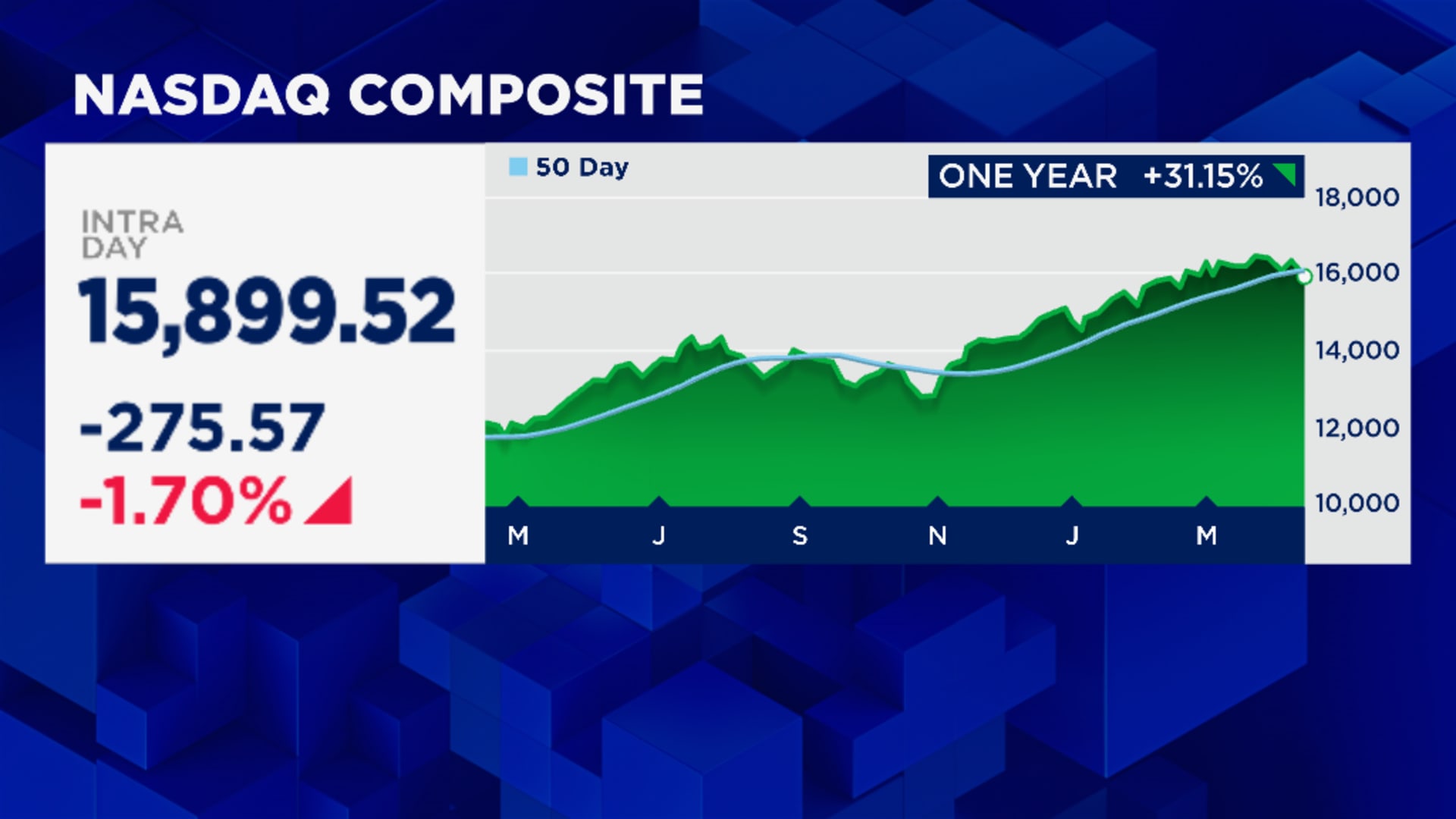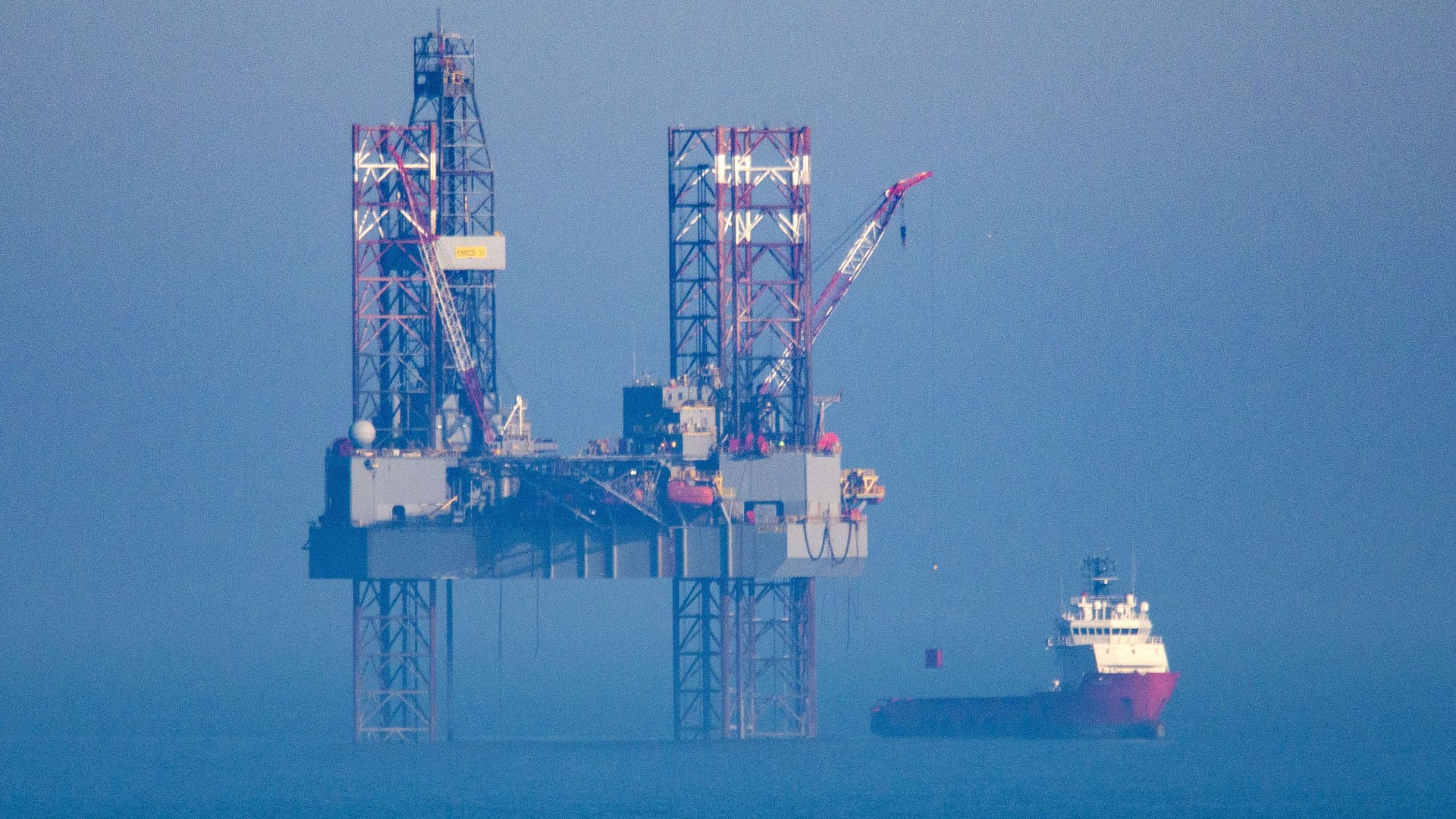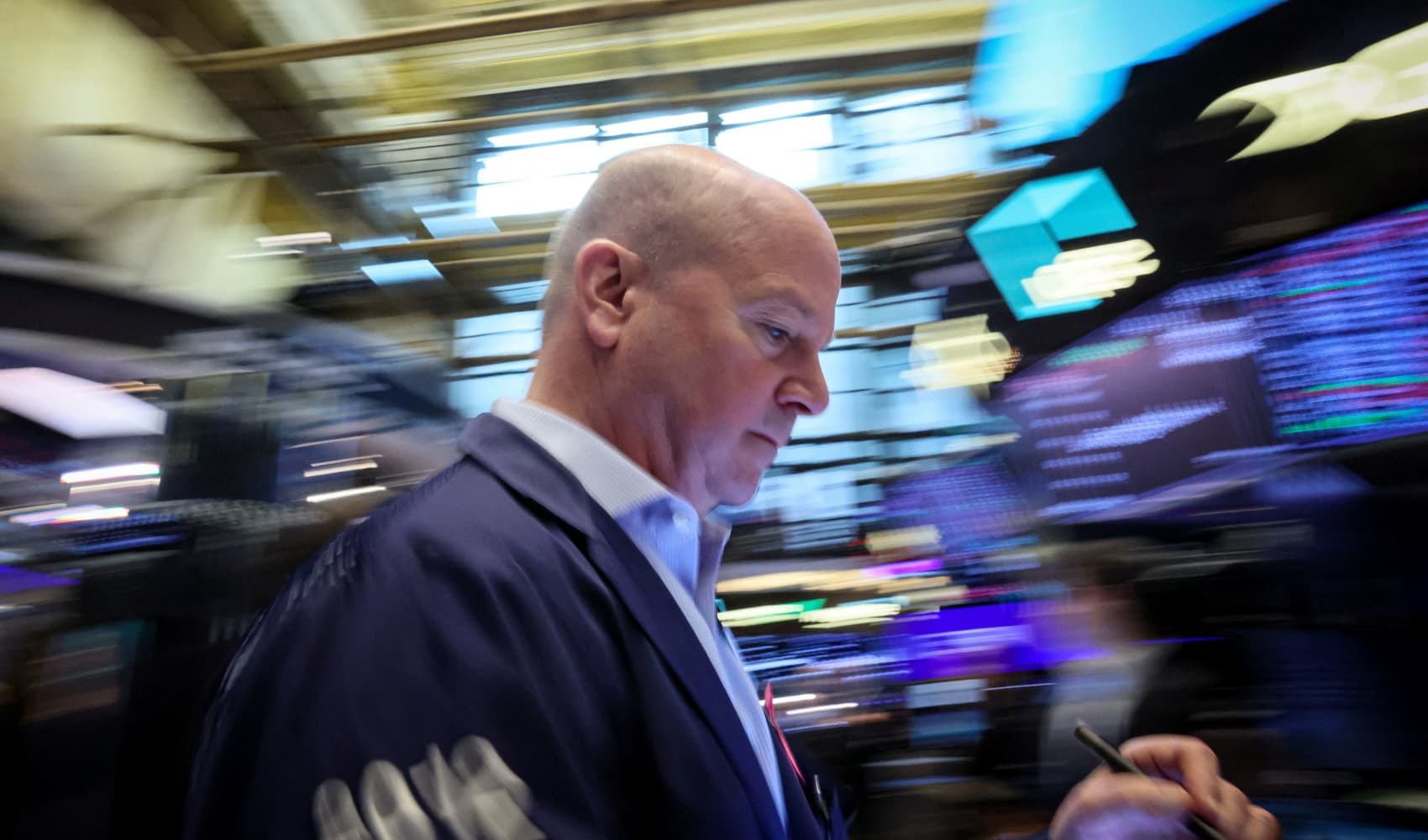
This is CNBC's live blog covering Asia-Pacific markets.
Asia-Pacific markets sold off as the world awaits Israel's response to Iran's air assault over the weekend. Most major markets in Asia lost about 2%.
On Tuesday, China's economy grew 5.3% in the first quarter compared with a year ago, faster than the 4.6% growth expected by economists polled by Reuters.
South Korea's Kospi led losses in the region, plunging 2.28% to 2,609.63, with the small-cap Kosdaq also down 2.3% and closing at 832.81.
Get South Florida local news, weather forecasts and entertainment stories to your inbox. Sign up for NBC South Florida newsletters.
Japan's Nikkei 225 tumbled 1.94% to its lowest level in almost two months, while the broad based Topix fell 2.04% to end at 2,697.11, its lowest level in month. Overnight the yen crossed 154 against the U.S. dollar, its weakest level since June 1990.
In Australia, the S&P/ASX 200 declined 1.81% to 7,612.5, marking its fourth straight day of losses and also hitting a two-month low.
Hong Kong's Hang Seng index slid 2.12%, while the CSI 300 was 1.07% lower and closed at 3,511.11 after the GDP announcement.
Money Report
Overnight in the U.S., stocks retreated on Monday as rising yields and worries over the conflict in the Middle East overshadowed strong Goldman Sachs earnings and hot retail sales data.
The Dow Jones Industrial Average lost 0.65%, to mark its sixth straight losing day, a streak not seen since June.
The S&P 500 slipped 1.2% despite trading up as much as 0.88% earlier in the session. The Nasdaq Composite tumbled 1.79% as Salesforce and other technology stocks dropped.
Higher rates also poured cold water on the market bounce, with the yield on the 10-year Treasury rising above the key 4.6% level in the session and reaching its highest point since mid-November.
— CNBC's Hakyung Kim and Alex Harring contributed to this report.
JPMorgan says India's growth no longer from a 'narrow' part of the economy, opportunities in banking sector
India's growth is no longer constrained to a narrow part of the economy, with the banking sector continuing to be a big driver, according to JPMorgan's Harsh Modi, co-head of Asia ex-Japan for banks research.
"India is one market where we are getting very significant growth, and this growth is across the board," he told CNBC's "Street Signs Asia."
Modi said the asset quality of Indian banks is "one of the cleanest" in Asia-Pacific, adding that he sees opportunities in the sector which has "very clean books now."
— Charmaine Jacob
China's March industrial output and retail sales data miss expectations
China's industrial output for March grew 4.5% year-on-year, missing Reuters' expectations of a 6% expansion.
China's manufacturing industry grew 5.1% while its mining industry grew 0.2%, according to the National Bureau of Statistics. The country's electricity, heat, gas and water production and supply industry climbed by 4.9%.
The country's retail sales, a gauge for its consumption, grew 3.1% year-on-year, less than expectations for 4.6% growth. The reading also slowed from the prior month's figure of a 5.5% growth.
—Lee Ying Shan
China's economy grew 5.3% in the first quarter, beating expectations
China's economy grew 5.3% in the first quarter compared with a year ago, faster than the 4.6% growth expected by economists polled by Reuters.
Data released by China's National Bureau of Statistics showed that gross domestic product in the January to March period was higher than the 5.2% growth for the fourth quarter. On a quarter-on-quarter basis, China's GDP grew 1.6% in the first quarter.
Beijing has set a 2024 growth target of around 5%.
—Lim Hui Jie
China new house prices fall 2.2% in March, sharpest decline since August 2015
New home prices in China have fallen for a ninth straight month, slipping 2.2% year on year in March.
This was a faster decline than the 1.4% drop in February, and is the sharpest fall in home prices since August 2015, according to LSEG data.
On a month-on-month basis, prices of new housing in first-tier cities fell by 0.1% month-on-month, while sale prices of new homes in second and third-tier cities fell by 0.3% and 0.4% month-on-month, respectively.
First tier cities include the capital Beijing, as well as Shanghai, Guangzhou and Shenzhen.
— Lim Hui Jie
Yen falls to weakest level since June 1990 as it crosses 154 against greenback
The Japanese yen fell to its weakest level since June 1990, crossing the 154 mark against the U.S. dollar.
The yen has been firmly beyond the 150 mark since the Bank of Japan raised interest rates on March 19, with Japanese officials repeatedly saying that "all options are on the table" to counter excessive yen moves.
On April 4, former top currency diplomat Hiroshi Watanabe said that authorities will not intervene until the yen crosses 155 against the greenback, according to Reuters.
— Lim Hui Jie
CNBC Pro: These 10 oil stocks are the most — and least — sensitive to price swings amid Iran-Israel tensions
Crude oil prices have been volatile in April amid heightened geopolitical risks.
CNBC Pro screened for stocks in the MSCI World Energy Index that are both highly correlated and inversely correlated with international benchmark Brent crude oil prices over the past week, month, and year.
CNBC Pro subscribers can read more here.
— Ganesh Rao
CNBC Pro: Morgan Stanley names global ‘alpha’ stock ideas for April — and gives one over 30% upside
Asian markets have had a mixed start to the year — with investors looking keenly at India, Japan and increasingly China.
Looking ahead, those searching for pockets of opportunities in the region can look to Morgan Stanley's selection of "alpha" stocks. Alpha stocks refer to those with the ability to beat the market.
CNBC Pro subscribers can read more here.
— Amala Balakrishner
The oil market shrugged Iran's attack. What happens next depends on Israel

The oil market on Monday shrugged off Iran's weekend air assault against Israel with U.S. crude and the global benchmark both settling slightly lower.
The West Texas Intermediate contract for May lost 25 cents, or 0.29%, to settle at $85.41 a barrel. June Brent futures fell 35 cents, or 0.39%, to settle at $90.10 a barrel.
The market had already priced in the risk from an attack Iran had telegraphed for days beforehand, and traders breathed a sigh of relief after Israel and the U.S. intercepted nearly all the missiles fired.
What happens next depends on how Israel decides to respond.
"What is not priced into the current market, in our view, is a potential continuation of a direct conflict between Iran and Israel," Maximilian Layton, head of commodities research at Citi, told clients in a note. Oil prices could spike above $100 a barrel depending on how Israel responds to the attack, the analyst wrote.
— Spencer Kimball
Nasdaq Composite slides below its 50-day moving average, a first since November
The major indexes resumed their sell-off on Monday, and the Nasdaq Composite slipped below its 50-day moving average as the index dropped about 1.7%.
It was the first time the tech-heavy index slid below this key threshold since Nov. 3, 2023. If it closes below that level, it will be a first since Nov. 2, 2023. The index is up more than 30% in the past 12 months.

The 50-day moving average is a technical indicator that traders watch to assess short-term trading trends. A close below this level could signal an upcoming downtrend for an asset.
— Darla Mercado, Nick Wells
British investment bank sees $100 oil and 10% stock market correction

Turmoil in the Middle East could cause dramatic moves in the financial markets, according to U.K. investment bank Liberum Capital, which is calling for oil to surge to $100 and a stock market correction as big as 10%.
"In our base case scenario of Israel retaliating but in a limited way that keeps the conflict from escalating further, this could lead to a 5-10% correction in the stock market together with further strength in the U.S. dollar," Liberum, founded in 2007, said in a note to clients.
The firm revealed the obvious short-term winners, which include defense contractors.
— Yun Li
Retail sales data comes in above economists' forecast

Stock futures took a leg up after retail sales data came in hotter than anticipated for March.
U.S. Census Bureau data showed the measure increased 0.7% for the month. That is a higher rate than the Dow Jones consensus forecast for a 0.3% increase, underscoring the trend of continued consumption despite higher prices in the U.S.
— Alex Harring, Jeff Cox






